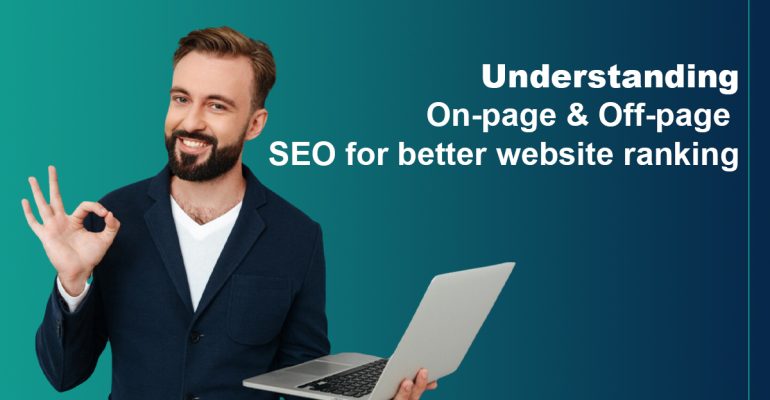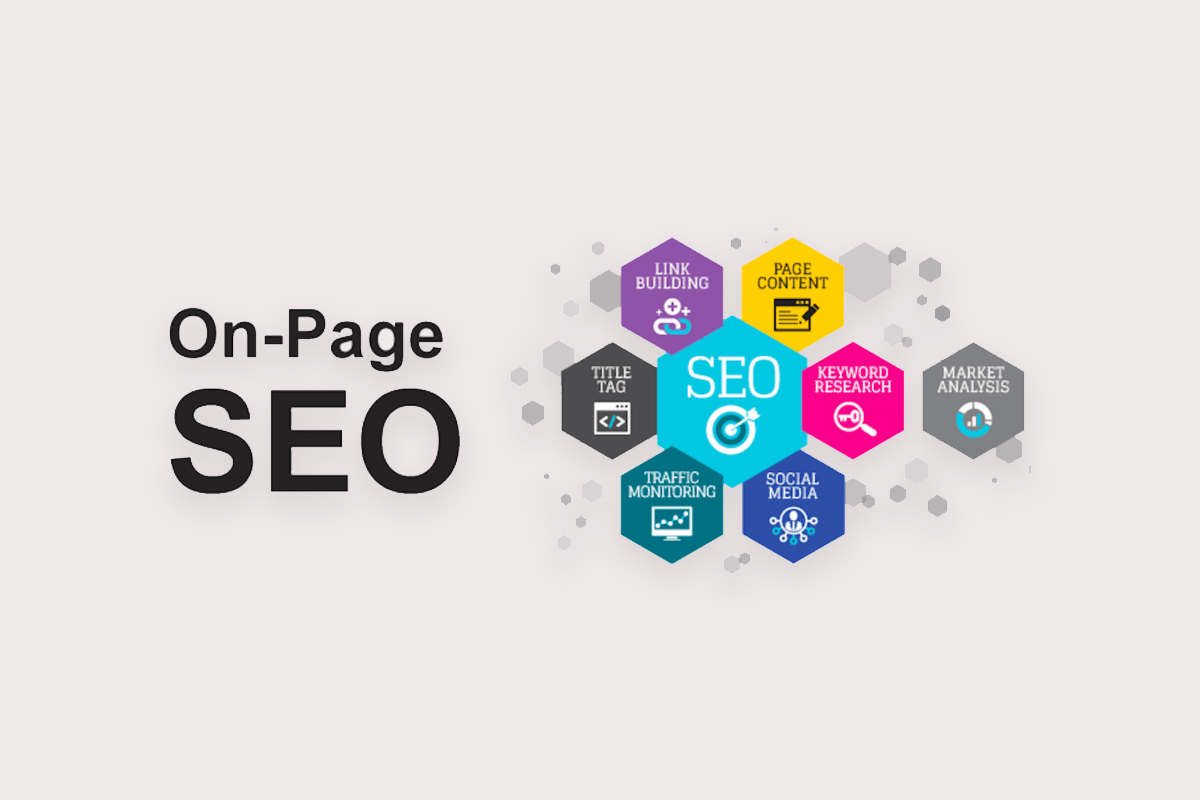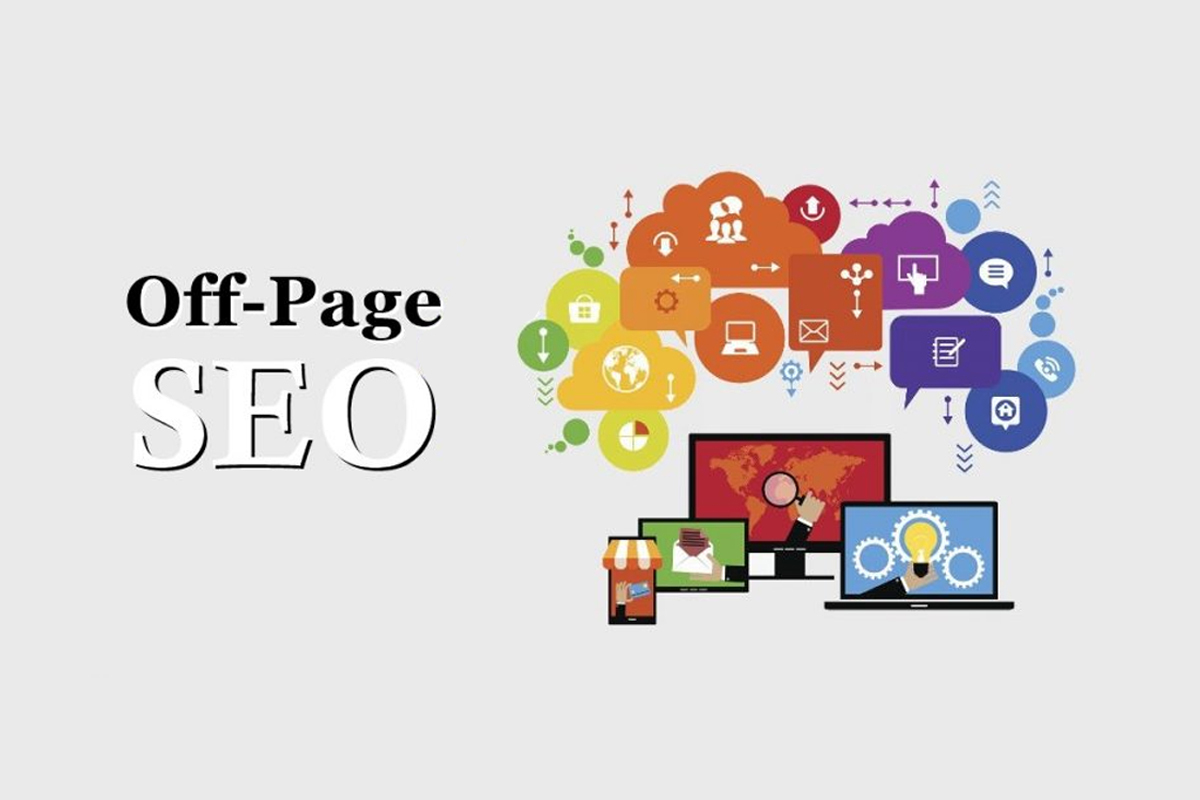Understanding On-Page and Off-Page SEO for Better Website Ranking

Understanding On-Page and Off-Page SEO for Better Website Ranking
The Roles of On-Page and Off-Page SEO in Website Ranking
Search engine optimization (SEO) is a critical aspect of digital marketing Services that businesses cannot afford to ignore. The purpose of SEO is to improve a website’s visibility and ranking on search engines. This process involves various strategies aimed at increasing website traffic, including on-page and off-page SEO.
On-page SEO
On-page SEO refers to the techniques used to optimize individual pages of a website to rank higher on search engines. These techniques are within the website owner’s control, and they can be optimized to improve search engine ranking. On-page SEO is essential because it enables search engines to better understand the content of a page, which can lead to higher rankings.
One crucial aspect of on-page SEO is the quality of the content. High-quality content is essential for better rankings because it is more likely to be shared and linked to by other websites. Therefore, businesses should focus on producing high-quality, relevant, and engaging content to boost their on-page SEO.
Optimizing web pages for on-page SEO involves various elements, such as the website’s structure, HTML code, images, and content. These elements need to be optimized for the website to rank higher in search engine results pages (SERPs).
The following are some critical elements of on-page SEO:
- Title tags: The title tag is a crucial on-page SEO element because it appears at the top of the web page and tells search engines what the page is about. The title tag should be short, descriptive, and contain the primary keyword for the page.
- Meta descriptions: A meta description provides a summary of what a web page is about. It appears below the title tag in search engine results and should be compelling enough to encourage users to click through to the website.
- Header tags: Header tags (H1, H2, H3, etc.) help search engines understand the structure of a page. The H1 tag should contain the primary keyword and describe the page’s main topic.
- Content optimization: Content optimization involves ensuring that the content on a page is relevant, engaging, and of high quality. It should be structured correctly, including the use of bullet points and subheadings, to make it easier for users to read.
- Image optimization: Images are a crucial aspect of on-page SEO because they can make a page more visually appealing and engaging. Image optimization involves using alt tags, compressing images, and using descriptive file names to make them more accessible to search engines.

Off-page SEO
Off-page SEO refers to the techniques used to improve a website’s visibility and ranking that are outside the website owner’s control. It involves promoting a website through external channels such as social media, link building, and content marketing. Off-page SEO is crucial because search engines use links to determine a website’s authority and relevance. The more high-quality links a website has, the more authoritative it appears to search engines. Therefore, businesses should focus on building high-quality links to their website to improve their off-page SEO.
The following are some critical elements of off-page SEO:
- Link building: Link building involves obtaining backlinks from other websites. The more backlinks a website has from high-quality, relevant websites, the higher its authority appears to search engines. Therefore, businesses should focus on building high-quality links to their website to improve their off-page SEO.
- Social media marketing: Social media marketing involves using social media platforms such as Facebook, Twitter, LinkedIn, and Instagram to promote a website. Social media can help businesses build brand awareness and drive traffic.

Utilize Social Media
Social media has become a significant part of our lives and a great tool for businesses to promote their brand and website. Utilizing social media platforms such as Facebook, Twitter, Instagram, and LinkedIn can help you reach a broader audience and drive more traffic to your website.Sharing your blog posts, product pages, and other content on social media can help you generate more engagement, increase brand awareness, and build a community around your brand. It is essential to choose the right social media platform depending on your business and audience.
For example, if you run a B2B business, LinkedIn might be the right platform to connect with other professionals and generate leads. On the other hand, if you sell products directly to consumers, platforms like Instagram and Facebook might be more effective.
Moreover, social media platforms also provide a great opportunity to earn backlinks to your website. By sharing your content on social media and engaging with your audience, you can attract the attention of influencers and bloggers who might link to your website from their own blogs.
Focus on Local SEO
If you run a local business, local SEO should be an essential part of your digital marketing strategy. Local SEO focuses on optimizing your website and online presence for local searches.
For example, if you run a bakery in Los Angeles, you want your website to appear when someone searches for “best bakeries in Los Angeles.” Optimizing your website for local SEO can help you rank higher in local search results, drive more foot traffic to your store, and attract more local customers.
Some of the key strategies for local SEO include optimizing your Google My Business profile, creating local content, building local citations, and earning local backlinks.
Utilize Email Marketing
Email marketing is another effective way to drive traffic to your website and engage with your audience. Email marketing involves sending targeted messages to your subscribers with the aim of promoting your products, services, and content. One of the biggest advantages of email marketing is that it allows you to reach your audience directly and build a more personal relationship with them. By sending relevant and engaging emails, you can keep your subscribers informed about your business and build brand loyalty.
Moreover, email marketing can also help you drive traffic to your website by promoting your blog posts, product pages, and other content. You can also use email marketing to promote special offers, discounts, and other incentives to encourage your subscribers to visit your website.
Invest in Paid Advertising
While SEO and other organic traffic sources can take time to produce results, paid advertising can help you generate traffic quickly. Paid advertising involves paying for ad placements on search engines, social media platforms, and other websites. Some of the most popular paid advertising platforms include Google Ads, Facebook Ads, and LinkedIn Ads. Paid advertising can help you reach a wider audience, generate more leads, and drive more traffic to your website. However, it is essential to set clear goals and a budget for your paid advertising campaigns to ensure that you are getting a positive return on investment (ROI). It is also crucial to target the right audience and use the right ad formats and messaging to maximize your results.
Conclusion
Driving traffic to your website is essential to the success of your online business. While there are many different strategies and tactics you can use to generate traffic, the most effective approach involves a combination of SEO(On-Page and Off-Page SEO), content marketing, social media, and other digital marketing channels.
By following the tips and best practices outlined in this article, you can increase your website traffic, attract more leads and customers, and grow your online business. Remember to stay up-to-date with the latest trends and techniques in digital marketing and continuously monitor and optimize your website for better results. In today’s competitive online marketplace, SEO is no longer an option but a necessity for businesses of all sizes. By partnering with Ai Tech Marketing for your SEO (On-Page and Off-Page SEO) sub-services, you can improve your website’s search engine rankings, drive more organic traffic to your website, and ultimately grow your business.
Don’t wait any longer to get started on your SEO journey. Contact Ai Tech Marketing today to learn more about how we can help you achieve your SEO goals and take your business to the next level.

